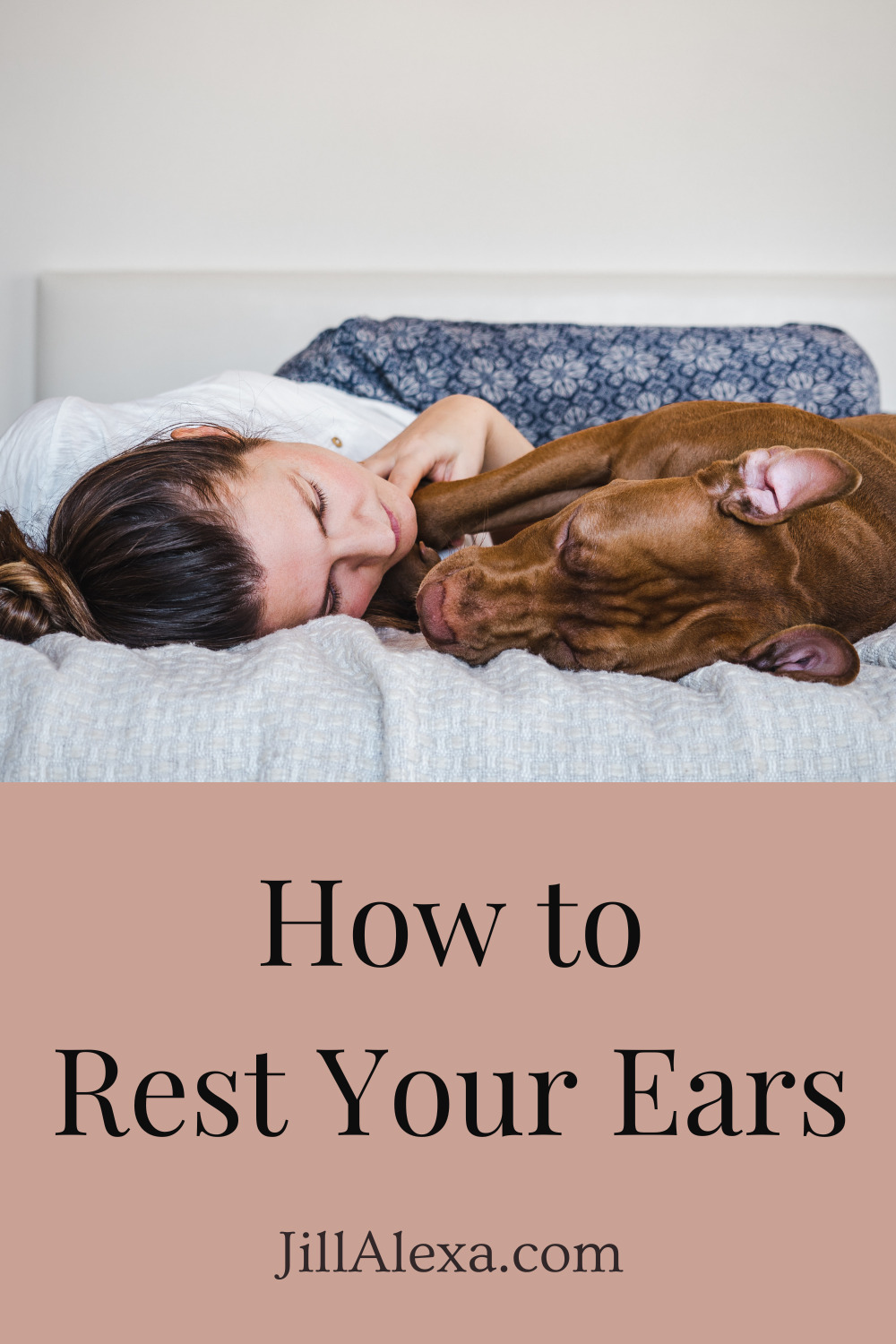How to Rest Your Ears | JillAlexa.com
Yes, resting your ears is exactly what it sounds like – and what many people don’t know is that it is vital for good ear health. It’s not just ear health. It helps, though, for those who have podcasts, play instruments, listen to a lot of music, or produce – it is vital.
First and foremost, once the headphones are on or you are standing at the front of a live music event – time goes by quickly. And while you’re not watching the clock, you’re probably not thinking about the loudness too much, either.
Most people want to preserve their level of hearing and protect it long term – and that is where a resting ear is a healthier ear.
How to Rest Your Ears
Photo by Clem Onojeghuo on Unsplash
What are the signs of a tired ear?
 Listening fatigue, which can also be called ear fatigue, is when your ears become tired after extended times of noise. Some of the symptoms of ear fatigue are:
Listening fatigue, which can also be called ear fatigue, is when your ears become tired after extended times of noise. Some of the symptoms of ear fatigue are:
- Discomfort
- Pain
- Feeling mentally tired
- Loss of sensitivity
The people who are most likely to experience this are musicians, producers, and people who listen to music a lot. There are also military personnel and construction workers – and anyone else who is around loud noise a lot.
Anyone who has left a club or a live music event might notice that it takes their ears a few minutes or more to adjust. They can feel tingly, there might be ringing in ears, or they may feel extra sensitive.
How can you rest your ears?
We often forget that our ears are getting a lot more stimulus than they used to years ago. With music players and high-quality headphones, people are more likely to listen to music for extended hours – at a high volume.
Think about it: your ears are almost set to ‘on,’ and when they are exposed to loudness, often they work harder.
So here are some tips for resting our hard-working ears:
3 Ways to Rest Your Ears
1. Breaks
You might not be in a position to stop the noise, but taking a break might be in your control. So taking breaks of about 10 minutes as often as possible during a live music show or loud place is a must.
2. Silence
Podcasts, music, TV, the humming of the fridge – everything is noise. And while it might be pretty tough to get it completely silent, aim for as silent as possible for at least an hour a day – more if you can make time for it.
3. Plugs
There are many earplugs that have different functions, and there might be a good pair for your lifestyle. There are earplugs that can reduce the loudness of everything from children playing to music and more.
Earplugs don’t need to be large and obvious; there are many on the market that are designed to be discreet.
Teens are most at risk as they are more likely to have their volume too high, and helping them to understand the risks and introducing listening levels and earplugs can help them concentrate more, too, along with these tips: How to Help Your Teen Focus on Homework
How to Rest Your Ears – Final Thoughts
The thing is that when we are young, most of us are generally not thinking about ear health and how to preserve it. We look at older people who are deaf and never stop to think that might become us one day if we have prolonged periods of listening fatigue. And our hearing fails so slowly that we don’t notice it going until we find ourselves asking, “What was that again?“.
If you’re starting to ask people to repeat what they said more often than not, it might be time to rest your ears and have your hearing checked.
Does any of this ring true for you? Share your thoughts in the comments below.


